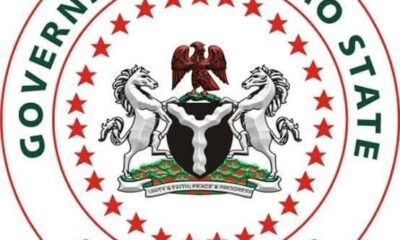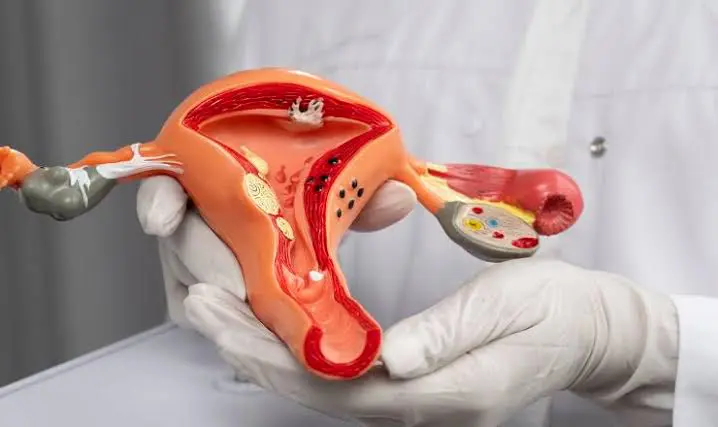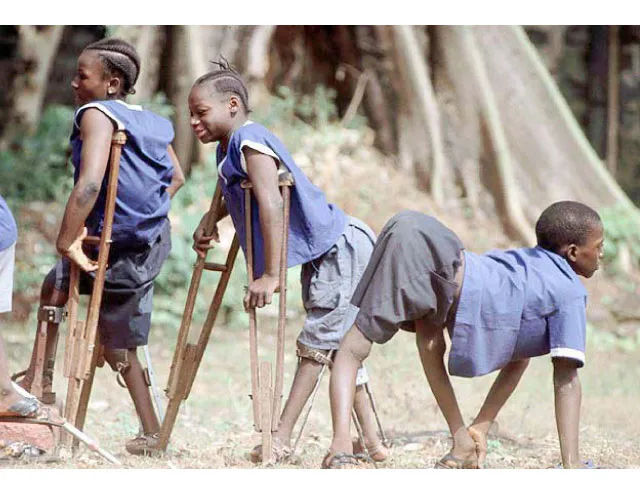Health
Gaza health ministry says 87 killed in northern Gaza airstrike
Published
6 months agoon
By
Ekwutos BlogBy Nidal al-Mughrabi
CAIRO (Reuters) – A total of 87 people were killed or missing under the rubble after an Israeli attack on Saturday on northern Gaza’s town of Beit Lahiya, with more than 40 wounded, the Palestinian enclave’s health ministry said on Sunday.
The Israeli military has said it was investigating reports of the incident, which left one of the highest casualty tolls in months. Earlier, it said a total of 73 reported by the Hamas media office appeared exaggerated given the nature of the munitions used in the strike, which it said hit a Hamas target.

Palestinians gather at the site of Israeli strikes on houses and residential buildings, amid the ongoing Israel-Hamas conflict, in Beit Lahiya, in the northern Gaza Strip October 20, 2024. REUTERS/Abdul Karim Farid
© Thomson Reuters
Gaza’s health ministry said rescue operations were being hindered by communications problems and by the Israeli military operation still going on around the area, close to the border line with Israel, the ministry said.

Palestinians gather at the site of Israeli strikes on houses and residential buildings, amid the ongoing Israel-Hamas conflict, in Beit Lahiya, in the northern Gaza Strip October 20, 2024. REUTERS/Abdul Karim Farid
© Thomson Reuters
“Victims are still under the rubble and on the road and ambulance teams and civil emergency can’t reach them,” it said in a statement.
The strike, late on Saturday night, came two weeks into a major operation around the town of Jabalia, just to the south of Beit Lahiya, where Israeli troops backed with tanks have been trying to squeeze out remaining Hamas fighters.

Palestinians gather at the site of Israeli strikes on houses and residential buildings, amid the ongoing Israel-Hamas conflict, in Beit Lahiya, in the northern Gaza Strip October 20, 2024. REUTERS/Abdul Karim Farid
© Thomson Reuters
“Horrifying scenes unfolding in Gaza, amidst conflict, relentless Israeli strikes & an ever-worsening humanitarian crisis. I condemn the continuing attacks on civilians,” U.N. Middle East peace envoy Tor Wennesland posted on X.

Palestinians gather at the site of Israeli strikes on houses and residential buildings, amid the ongoing Israel-Hamas conflict, in Beit Lahiya, in the northern Gaza Strip October 20, 2024. REUTERS/Abdul Karim Farid
© Thomson Reuters
“Hostages must be freed, displacement of Palestinians must cease, & civilians must be protected,” he added.
Evacuation orders, directing people south, have fuelled fears among many Palestinians that the operation is intended to clear them out of the northern part of Gaza in order to help ensure Israeli control of the area after the war.
Israel has denied any such plans, saying it is trying to protect civilians and separate them from Hamas fighters.
The military says it has killed scores of armed Palestinian fighters, located weapons, and dismantled a variety of military infrastructure during the operation in Jabalia, home to one of Gaza’s eight historic refugee camps.
Residents in Jabalia said Israeli forces raided shelters housing displaced families and detained dozens of men.
FIGHTING IN GAZA REMAINS INTENSE
The death last week of Hamas leader Yahya Sinwar had drawn hopes of a possible opening up of moves to end the fighting in Gaza, more than a year after the Oct. 7, 2023 attack on southern Israel by Hamas-led gunmen who killed some 1,200 people and seized 251 hostages.
But the latest incident underscores how intense the conflict in Gaza still remains, even as Israel’s main focus has shifted north to its operation against the Iran-backed Hezbollah militia in Lebanon.
More than 42,600 Palestinians have been killed during Israel’s ground offensive, according to Palestinian health ministry figures, and thousands more are thought to be buried under the rubble. Much of the coastal enclave has been destroyed and most of its 2.3 million population has been displaced.
As the fighting has continued, health officials have reported stark shortages of food, fuel and medical supplies to treat patients in the three remaining hospitals still partially operating in the area.
Officials at the Kamal Adwan, Indonesian and Al-Awda hospitals said their facilities were besieged by Israeli forces, and at Kamal Adwan Hospital officials said the facility came under Israeli fire.
(Reporting by Nidal Al-Mughrabi; Editing by Hugh Lawson and Alex Richardson)
You may like


FG DISBURSES ₦50BN TO SETTLE ASUU AND NASU FOR EARNED ALLOWANCES


AGF assures probe of ex-NNPCL boss Mele Kyari over corruption allegations


Uzodimma okays clampdown on commercial vehicles drivers operating with tinted glasses


UPDATED: Oborevwori, Okowa, others dump PDP for APC


Fact-checker has falsified Ukachukwu’s claim to be the highest employer of labour at a point in Anambra.


Peter Obi Pays Tribute: POPE FRANCIS EULOGY: Leaders Urged to Emulate Pontiff’s Values
Health
12,000 women diagnosed with cervical cancer annually – Minister
Published
3 days agoon
April 21, 2025By
Ekwutos Blog
About 12,000 Nigerian women are diagnosed with cervical cancer annually, despite the disease being largely preventable, the Coordinating Minister of Health and Social Welfare, Dr Mohammed Ali Pate, has disclosed.
The Minister made the disclosure during the launch of the cervical cancer vaccine campaign and the Human Papillomavirus (HPV) vaccine integration sensitisation exercise held at Government Girls College, Bauchi.
According to him, “There is the need for greater awareness among stakeholders as part of efforts to eliminate cervical cancer in Bauchi State and across Nigeria.”
With the HPV vaccine, Pate stated that the disease can be prevented if vaccination is administered early to individuals who are susceptible to the virus and at risk of eventually developing cervical cancer.
He assured the commitment of the President to the cause and recalled the official flag-off of the HPV vaccination campaign in October 2023.
The Director-General of the National Institute for Cancer Research and Treatment, Dr Usman Malami, in his remarks, explained that cervical cancer is one of the few cancers with a known cause.
He added that it makes it one of the most preventable forms of cancer, stressing that since they already know what causes it and what can provide lifelong immunity, vaccination becomes a critical tool.
Health
Katsina targets three million children for polio immunisation — Official
Published
1 week agoon
April 16, 2025By
Ekwutos Blog
The Katsina State Primary Healthcare Development Agency (SPHCA) says it is targeting not less than three million children during the polio immunisation campaign scheduled for 26 -29 April.
Its Executive Secretary, Shamsudeen Yahaya, made the disclosure on Tuesday at a media dialogue with UNICEF, Katsina State Government officials and partners on polio and routine immunisation in the state.
Mr Yahaya said the exercise was aimed at creating awareness of the importance of immunisation in saving children from preventable deaths.
He, therefore, urged the media to continue to enlighten caregivers and other stakeholders on the importance of immunisation.
He revealed that the state has 1,636 health facilities providing routine immunisation services for children.
Mr Yahaya said the government would engage 3,700 independent monitors to ensure that each eligible child is reached during the campaign.
In his remarks, the Officer-in-Charge (OIC), also the Nutrition Manager of UNICEF Kano Field Office, Karanveer Singh, stressed the need to immunise every child against polio and other deadly diseases.
Mr Singh revealed that polio is highly infectious, warning, “Once a child is infected with the virus, he or she is permanently paralysed.”
The officer explained that every round of immunisation is important, as is immunising every child until the virus is completely eradicated.
He added that immunisation is the backbone of any eradication programme, hence the need for caregivers and other stakeholders to intensify efforts in ensuring that all children below five years are fully immunised.
Health
We must stop contaminating our rivers and streams in the name of ‘odinani’ (tradition)—- Gov Chukwuma Soludo
Published
2 weeks agoon
April 13, 2025By
Ekwutos Blog
In a recent address to All Progressives Grand Alliance supporters in Awka, Anambra State Governor Chukwuma Soludo raised concerns about pollution of local streams and rivers by native doctors during rituals. He stated, “We must stop contaminating our rivers and streams in the name of ‘odinani’ (tradition). Many depend on that water for drinking and cooking.”
According to Daily Trust, Governor Soludo urged practitioners to be responsible, saying, “If you must perform rituals, use a container—like a bucket—and carry out your practices there. Do not pollute our public water sources.” He emphasized that polluted water can lead to serious health issues, declaring that “we do not want that for our communities.”
He addressed the backlash from a crackdown on native doctors suspected of criminal behavior: “I am not targeting legitimate traditional worshipers but those who defraud and deceive people.” His aim is to eliminate fraudulent actors while respecting cultural practices.
He highlighted the need for balance: “We can embrace our traditions while ensuring the safety and health of our communities.”

FG DISBURSES ₦50BN TO SETTLE ASUU AND NASU FOR EARNED ALLOWANCES

AGF assures probe of ex-NNPCL boss Mele Kyari over corruption allegations

Uzodimma okays clampdown on commercial vehicles drivers operating with tinted glasses
Trending

 Trending6 months ago
Trending6 months agoNYA demands release of ‘abducted’ Imo chairman, preaches good governance
- Business6 months ago
US court acquits Air Peace boss, slams Mayfield $4000 fine

 Politics6 months ago
Politics6 months agoMexico’s new president causes concern just weeks before the US elections
- Entertainment6 months ago
Bobrisky transferred from Immigration to FCID, spends night behind bars
- Entertainment6 months ago
Bobrisky falls ill in police custody, rushed to hospital

 Politics6 months ago
Politics6 months agoRussia bans imports of agro-products from Kazakhstan after refusal to join BRICS

 Politics6 months ago
Politics6 months agoPutin invites 20 world leaders
- Politics1 year ago
Nigerian Senate passes Bill seeking the establishment of the South East Development Commission.

